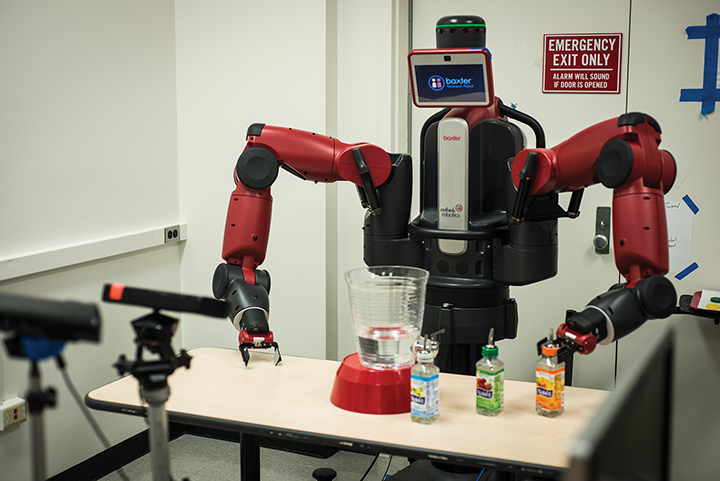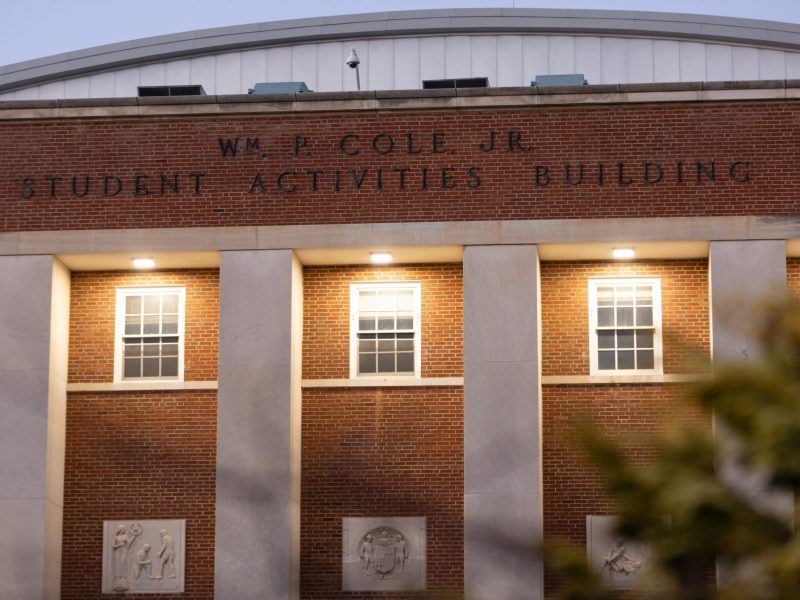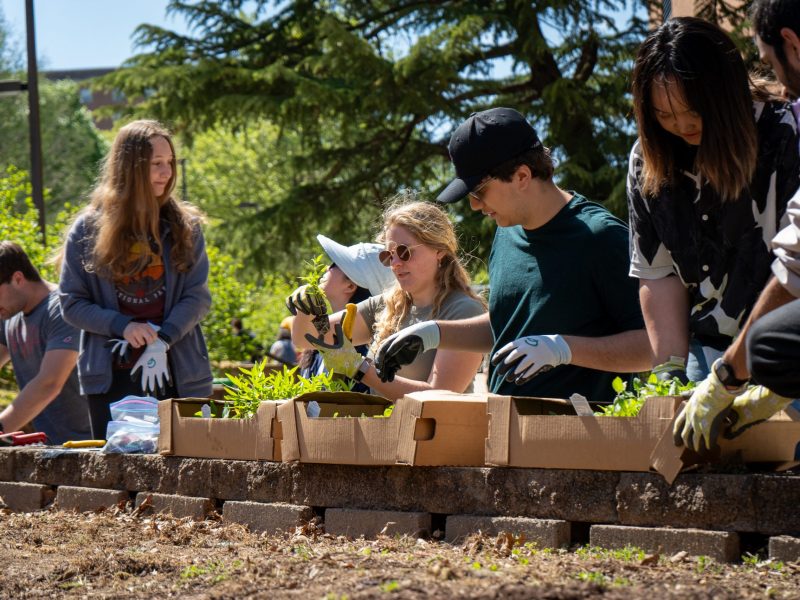Programming a robot to do specific tasks is one thing, but teaching it to solve unexpected problems on its own is even more complicated.
But if robots are ever going to reach a level of advancement where they can help people out around the house, they’ll need to know things like what to do if a plate breaks or if something else goes wrong, said Don Perlis, a University of Maryland computer science professor.
“You’d leave, and [the robot] would have to figure out details by itself — or something happens that makes it impossible to do what you asked, and it would have to respond to that because surprising things happen all the time,” Perlis said.
Researchers at this university are working to program robots that can solve problems on their own. To do so, they recently succeeded in teaching a robot to recognize another robot, which is “one step toward the ultimate goal of the robot having some sort of common sense reasoning,” said Chris Maxey, a senior computer science major who is involved in the research.
Two Baxter robots on the campus, named Julia and Alice, are currently involved in this common sense reasoning research aimed at making them smart enough to solve unexpected problems, Perlis said.
“Most of us have a lot of common sense,” Perlis said. “We make mistakes, and we usually figure out we’ve made mistakes, and we are smart enough not to make the same mistake over and over.”
If this work is successful, university researchers might eventually implement these robots for simple tasks on the campus, like getting an item from another room or navigating hallways, Perlis said, although such operations still require a lot of planning and programming.
“It’s a huge intellectual and scientific challenge,” Perlis said.
Yiannis Aloimonos, a computer science professor, said he thinks these kinds of tasks show what robots could eventually be useful for. Aloimonos said research like this provides a more accurate view of the future work of robots than pop cultural ideas of intelligent robots causing catastrophe.
“I doubt that something like that will ever happen because the robots will be our best friends,” he said.
When people think of robots, they usually think of an expert system, or a robot “designed to do one thing and do it really, really well,” like winning a game of chess or Jeopardy, Perlis said. Although these systems are impressive, they are not on the same level as an average, everyday human, he said.
“Humans are a lot more than just experts,” he said. “We have lives, we get up in the morning, we have breakfast, we brush our teeth and we do thousands of things during the day.”
The point of working with the Baxter robots is “to give the robots more robust reasoning capabilities for the real world,” Maxey said.
Last year, university researchers taught a robot how to cook by watching YouTube videos. The next step for the researchers is giving a robot the ability to differentiate between its own voice and someone else’s, Perlis said.
Aloimonos said that there is no doubt this research is “going to change the world.”
“We are in the middle of a revolution where we will be able to develop systems and frameworks where robots will be able to do manual jobs that humans do,” he said, “and then humans will be able to devote their creative energy to more interesting things.”



